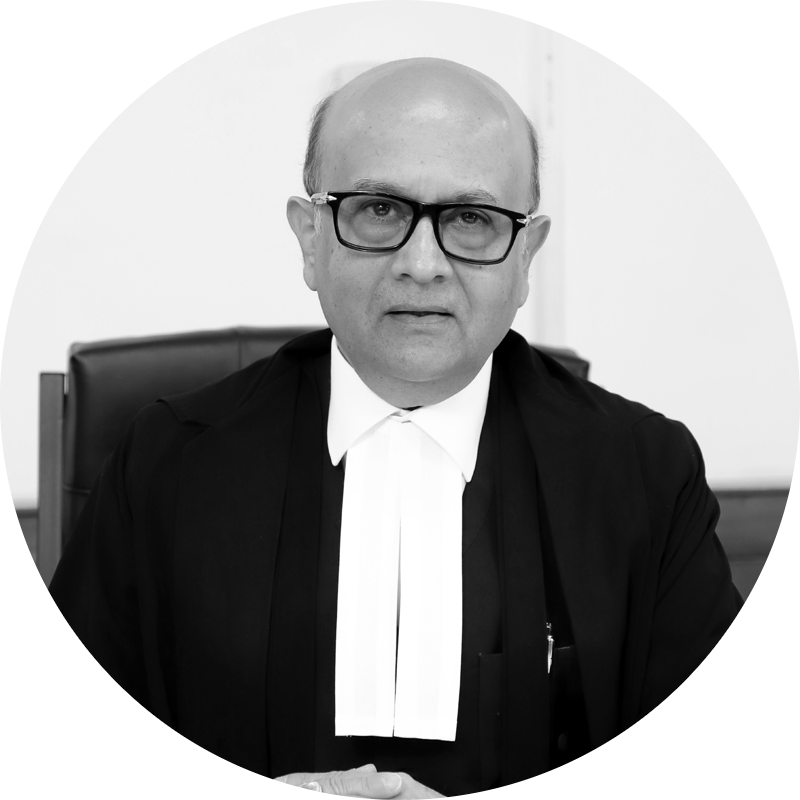Freebies in Electoral Democracy and Welfare State
Ashwini Kumar Upadhyay v Union of India
The Supreme Court is hearing challenges against the practice of offering and distributing freebies during election campaigns. The Court's decision will determine how political parties contest elections in India.
Pending
Parties
Petitioner: Ashwini Kumar Upadhyay
Lawyers: Vikas Singh, Ashwani Kumar Dubey
Respondent: Union of India, Election Commission of India
Lawyers: Tushar Mehta, Maninder Singh
Intervenors: Aam Aadmi Party, Dravida Munnetra Kazhagam (DMK), All India Mahila Congress, Taxpayers Association of Bharat, Centre for Public Interest litigation
Lawyers: Abhishek Manu Singhvi, Kapil Sibal, P. Wilson, Prashant Bhushan
Case Details
Case Number: W.P.(C) No. 43/2022
Next Hearing: August 21, 2024
Last Updated: August 21, 2024
Key Issues
Does promising freebies amount to bribing voters?
Are all freebies wasteful, or can some be considered social welfare schemes?
What kind of election promises amount to inefficient utilisation of public funds?
Who decides whether a party is using funds for a ‘public purpose’?
Case Description
On July 16th 2022, Prime Minister Narendra Modi remarked in a public address, ‘Attempts are being made to collect votes by distributing free revdis. This revdi culture is very dangerous for the development of the country.’ He was commenting on the election campaign practice of political parties promising freebies and subsidies in exchange for votes.
Mr. Modi’s comments brought a Public Interest Litigation (PIL) challenging the practice of offering ‘irrational freebies’ to the forefront at the Supreme Court. The petition was filed on January 22nd, 2022 and Advocate Mr. Ashwini Kumar Upadhyay.
In the PIL, Mr. Upadhyay argued that the promise of freebies unfairly influences voters, and amounts to bribery (Section 171B) and undue influence (Section 171C) under the Indian Penal Code, 1860. Further, he argued that utilisation of public funds to provide freebies that do not serve a ‘public purpose’ violates Articles 162, 266(3) and 282 of the Constitution of India, 1950. Article 162 sets the extent of executive power of State. Article 266(3) bars the misappropriation of funds from the Consolidated Fund of India or the Consolidated Fund of a State. Article 282 allows the Union and State governments to utilise revenues for a ‘public purpose’.
Most importantly, the petition asks the Court to direct the Election Commission of India to add a condition to the Election Symbols Order, 1968, barring political parties from promising or distributing ‘irrational freebies from public funds before elections’. The proposed provision will also de-register parties that distribute such freebies.
Experts echo the concern that providing freebies or social welfare schemes from public funding may be dangerous to the economy. On June 16th 2022 the Reserve Bank of India published an article highlighting a financial crisis developing in various states due to COVID-19 and the Russia-Ukraine war. The article stressed that a widening gap between state revenue and expenditure was exacerbated by an increase in freebies offered by State governments. In the 2021-22 financial year alone, State governments’ expenditure on subsidies grew at 11.2%. In highly debt ridden states such as Andhra Pradesh and Punjab, freebies have crossed 2% of the states’ Gross State Domestic Product (GSDP).
On August 9th, 2022, the Aam Aadmi Party (AAP) filed a petition before the Supreme Court opposing Mr. Upadhyay’s PIL. They argued that promises to provide basic utilities such as free water, free electricity or free public transport are not freebies. They noted that such benefits are crucial to provide access to basic resources and services to all, in India’s unequal society. Further, they argued that the petition was an attempt to thwart the efforts of opposition parties, and to further Mr. Upadhyay’s political agenda.
On April 10th, 2022, the Election Commission of India (ECI) filed an affidavit in the case upon the Court’s insistence. The ECI refused to regulate the practice of promising freebies in election campaigns. They submitted that the offering or distributing freebies was a policy decision—the Election Commission would be overreaching its powers if it regulated the practice. They insisted that it was the voters’ duty to assess the freebies’ financial viability and effect on the economy.
On August 3rd, 2022, a Bench comprising Chief Justice N.V. Ramana, Justices Krishna Murari and Hima Kohli suggested the formation of a committee of experts to ‘dispassionately’ consider the issue of freebies. They indicated that the committee would consist of members from the Finance Commission, Niti Aayog, Law Commission, the Reserve Bank of India, and political parties. The Bench directed all the parties to submit suggestions on the composition of the expert committee.
Two crucial questions arise from the case. First, what types of welfare schemes or freebies should be considered as wasteful and unlawful expenditure, and what amounts to expenditure for ‘public purpose’ allowed under Article 282? Second, can the SC set guidelines on how public funds can be utilised to provide the promised freebies, when it clearly falls under the scope of the legislature to make such laws?



